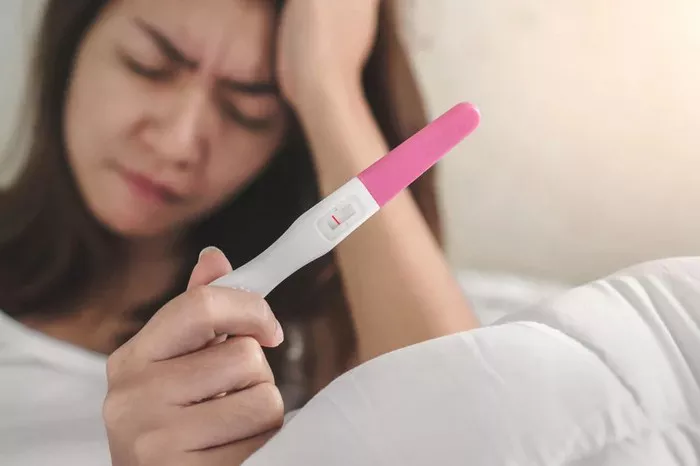For couples planning to start a family, understanding the intricacies of conception is paramount. Knowing when the highest chance to conceive occurs can significantly increase the likelihood of success. In this article, we delve into the various factors that influence fertility and provide actionable insights to help couples navigate their journey towards parenthood.
Understanding the Menstrual Cycle
The menstrual cycle is a complex process that prepares the female body for potential pregnancy each month. It typically lasts between 28 to 32 days, although variations are common. The cycle is divided into several phases, with each phase playing a crucial role in fertility.
The first phase, known as menstruation, marks the shedding of the uterine lining. Following menstruation, the follicular phase begins, during which follicles in the ovaries mature in preparation for ovulation. Ovulation, the next phase, is the release of a mature egg from the ovary. Finally, the luteal phase occurs after ovulation, characterized by the thickening of the uterine lining to support a potential pregnancy.
Understanding these phases is essential for predicting ovulation and identifying the fertile window, the period during which conception is most likely to occur.
Timing of Ovulation
Ovulation is a critical event in the menstrual cycle, as it is the prime opportunity for conception. Predicting ovulation accurately can significantly increase the chances of conceiving. Several methods can help determine ovulation timing, including basal body temperature (BBT) tracking, ovulation predictor kits (OPKs), and monitoring changes in cervical mucus.
BBT tracking involves measuring your basal body temperature each morning before getting out of bed. A slight increase in temperature indicates that ovulation has occurred, providing valuable information about the timing of fertility.
OPKs detect the surge in luteinizing hormone (LH) that precedes ovulation. By testing urine samples, these kits can pinpoint the most fertile days of the menstrual cycle.
Monitoring changes in cervical mucus is another reliable method for predicting ovulation. As ovulation approaches, cervical mucus becomes thin, clear, and slippery, resembling the texture of egg whites.
Combining these methods can enhance the accuracy of ovulation prediction, enabling couples to optimize their chances of conception.
Fertile Window
The fertile window refers to the days in the menstrual cycle when conception is most likely to occur. It typically spans a few days leading up to and including ovulation. While the exact duration of the fertile window varies from woman to woman, it generally falls within the timeframe of five days before ovulation to the day of ovulation itself.
Identifying the fertile window is crucial for timing intercourse to maximize the chances of conception. Couples should aim to have intercourse regularly during this period, ideally every one to two days, to ensure that sperm are present in the reproductive tract when ovulation occurs.
Frequency of Intercourse
While having intercourse during the fertile window is essential, the frequency of intercourse also plays a role in conception. Some couples may wonder whether daily intercourse is necessary to achieve pregnancy. However, research suggests that having intercourse every one to two days during the fertile window is sufficient to optimize fertility.
Frequent intercourse ensures that sperm are consistently available in the reproductive tract, increasing the likelihood of encountering the egg when it is released during ovulation. However, excessive intercourse may lead to a decrease in sperm quality, so maintaining a moderate frequency is advisable.
Lifestyle Factors
In addition to timing intercourse effectively, lifestyle factors can significantly impact fertility. Maintaining a healthy lifestyle is essential for both partners when trying to conceive.
Diet plays a crucial role in fertility, with research indicating that a balanced diet rich in fruits, vegetables, whole grains, and lean proteins can improve reproductive health. Avoiding excessive alcohol consumption and caffeine intake is also advisable, as these substances may negatively affect fertility.
Regular exercise is beneficial for overall health and may improve fertility by reducing stress levels and promoting hormonal balance. However, excessive exercise, especially in women, can disrupt the menstrual cycle and impair ovulation, so moderation is key.
Stress is another factor that can impact fertility, as high levels of stress hormones may interfere with ovulation. Finding healthy ways to manage stress, such as practicing relaxation techniques or engaging in enjoyable activities, can help mitigate its effects on fertility.
Environmental factors, such as exposure to toxins or pollutants, can also influence fertility. Couples should be mindful of their surroundings and take steps to minimize exposure to harmful substances whenever possible.
Medical Consultation
While many couples are able to conceive naturally, some may encounter difficulties along the way. If conception does not occur after several months of trying, or if there are concerns about fertility, seeking medical advice is recommended.
A healthcare provider can conduct a thorough evaluation to identify any underlying issues that may be affecting fertility. Depending on the circumstances, diagnostic tests such as hormone assessments, ultrasound scans, or semen analysis may be recommended to assess reproductive health.
Early intervention and treatment can help address fertility problems and improve the chances of conceiving successfully. Fertility specialists can provide personalized guidance and treatment options tailored to the individual needs of each couple.
Myths and Misconceptions
Despite the wealth of information available on fertility and conception, myths and misconceptions abound. It’s essential to separate fact from fiction to make informed decisions about family planning.
One common myth is that having intercourse in certain positions can increase the likelihood of conception. While some positions may be more comfortable or enjoyable for couples, there is no scientific evidence to suggest that any particular position improves fertility.
Another misconception is that age only affects female fertility. While it’s true that female fertility declines with age, male fertility can also be impacted by factors such as age, health, and lifestyle choices. Both partners should prioritize their reproductive health when trying to conceive.
Conclusion
In conclusion, understanding the factors that influence fertility and the timing of conception is crucial for couples embarking on the journey to parenthood. By familiarizing themselves with the menstrual cycle, ovulation timing, and lifestyle factors that affect fertility, couples can optimize their chances of conceiving successfully. Consulting a healthcare provider when needed and dispelling common myths about conception can further support their efforts to build a family. With the right knowledge and approach, couples can increase their likelihood of achieving their dream of becoming parents.
























